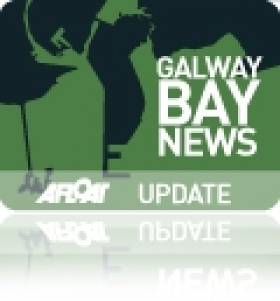Displaying items by tag: Water Supply
'Deep Concern' Over Shannon Pipeline Proposal For Dublin Water Supply
#InlandWaters - A pipeline from the Shannon may be the solution for future water supply demands in Dublin and the Midlands.
But critics have expressed "deep concern" over its potential effects on boating tourism and biodiversity throughout the Shannon system.
Irish Water today (Thursday 26 November) announced that the Parteen Basin on the Shannon, close to the ESB's hydroelectric plant at Ardnacrusha, is its preferred option for the supply point of a 165km pipeline to serve a growing population in Midlands and East Coast counties, as RTÉ News reports.
Around 2% of water that would otherwise be used for power generation at the Ardnacrusha plant would be taken for distribution to a region that already comprises 40% of Ireland's population and is expanding rapidly, according to TheJournal.ie.
However, the Inland Waterways Association of Ireland (IWAI) claims that Irish Water's option does not account for the effects on water levels throughout the Shannon system.
"The preferred option of abstraction from Parteen Basin provides for all year round abstraction. This means that in good weather as water levels decrease on the Shannon it will also have to meet the increased water supply needs of Irish Water," said the IWAI in a statement.
"This will see further decreases in water levels all along the entire Shannon as the level is maintained in Parteen Basin to supply water and electricity."
Loss of boating traffic to the region and threats to already vulnerable waterways habitats are key concerns expressed by the IWAI, which has itself suggested desalinisation of coastal waters as an option for future needs.
The association also notes that Irish Water's neglecting to provide for surplus water storage "is a missed opportunity as it would allow for heavy abstraction during flood conditions and also provide a valuable resource to Midlands communities for new activities and enterprises."
A 10-week public consultation is now underway on Eastern and Midlands Region Water Supply Project, with more details available HERE.
Funding Approved For Galway Water Mains Project
#GalwayBay - Galway Bay FM reports that Galway City Council has approved a €5 million project to upgrade the city's water mains.
The first phase of the Water Conservation Rehabilitation Works Programme will involve works on 15km of water mains across 17 meter areas in the city, which takes its water supply from the River Corrib that flows into Galway Bay.





























































